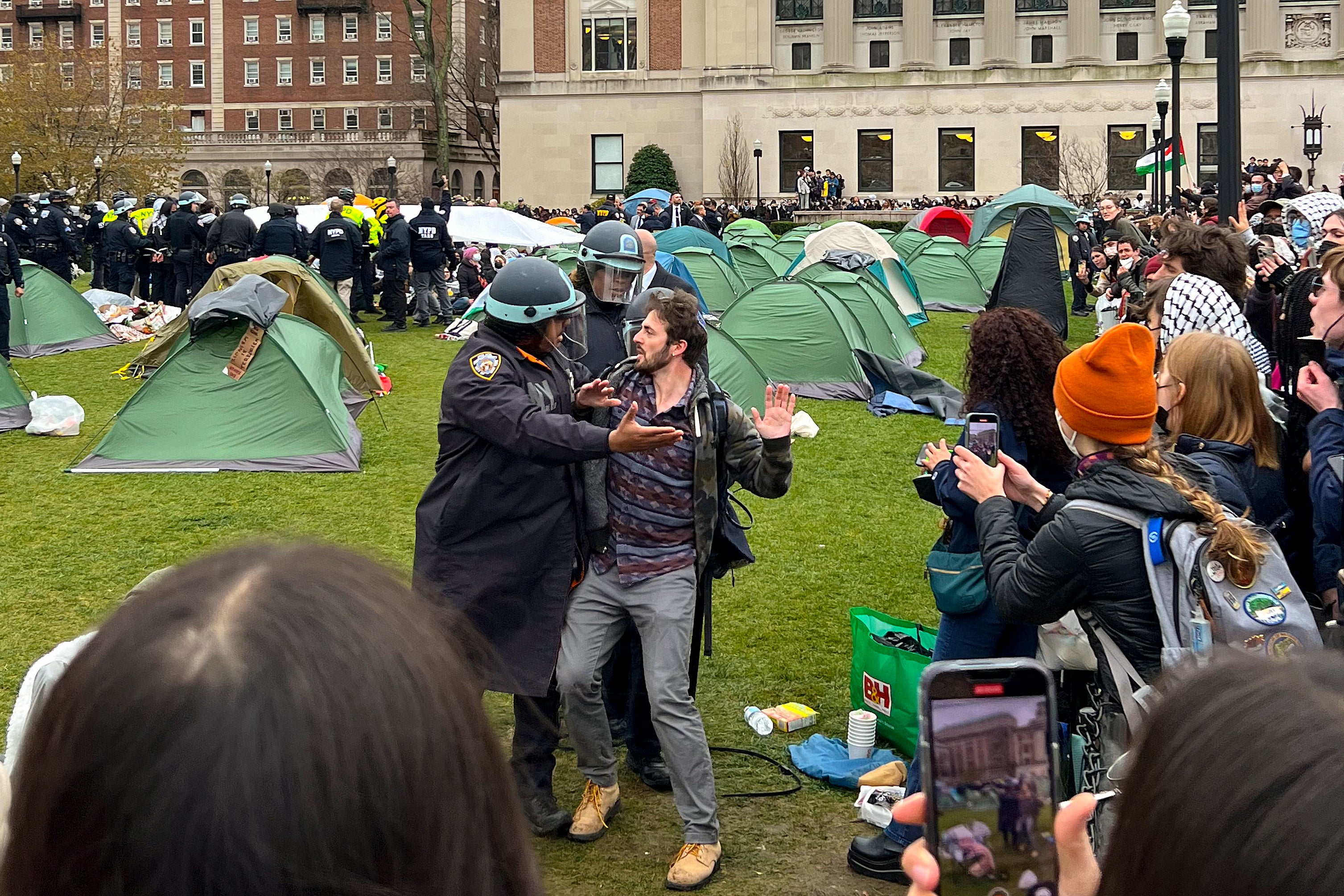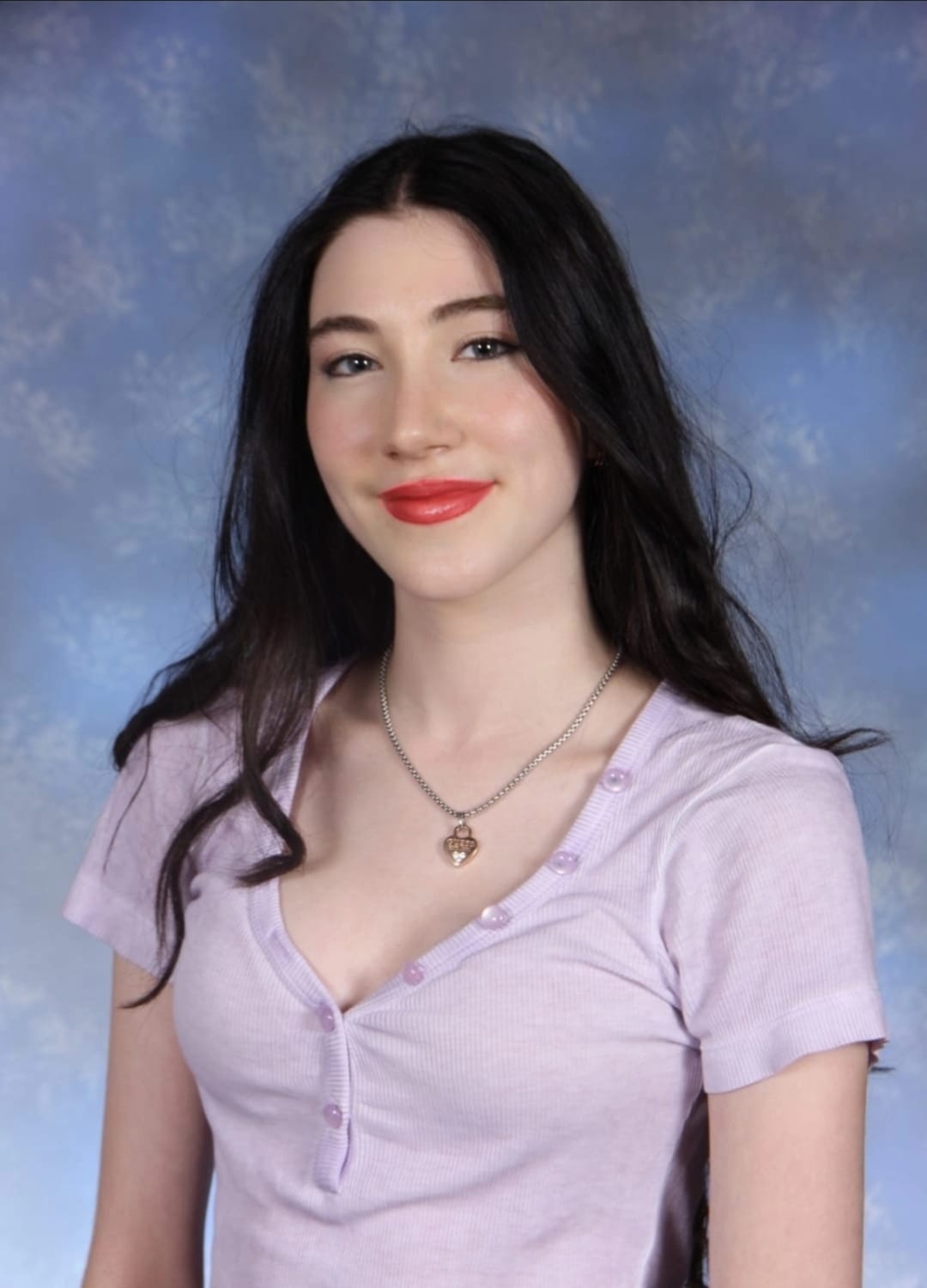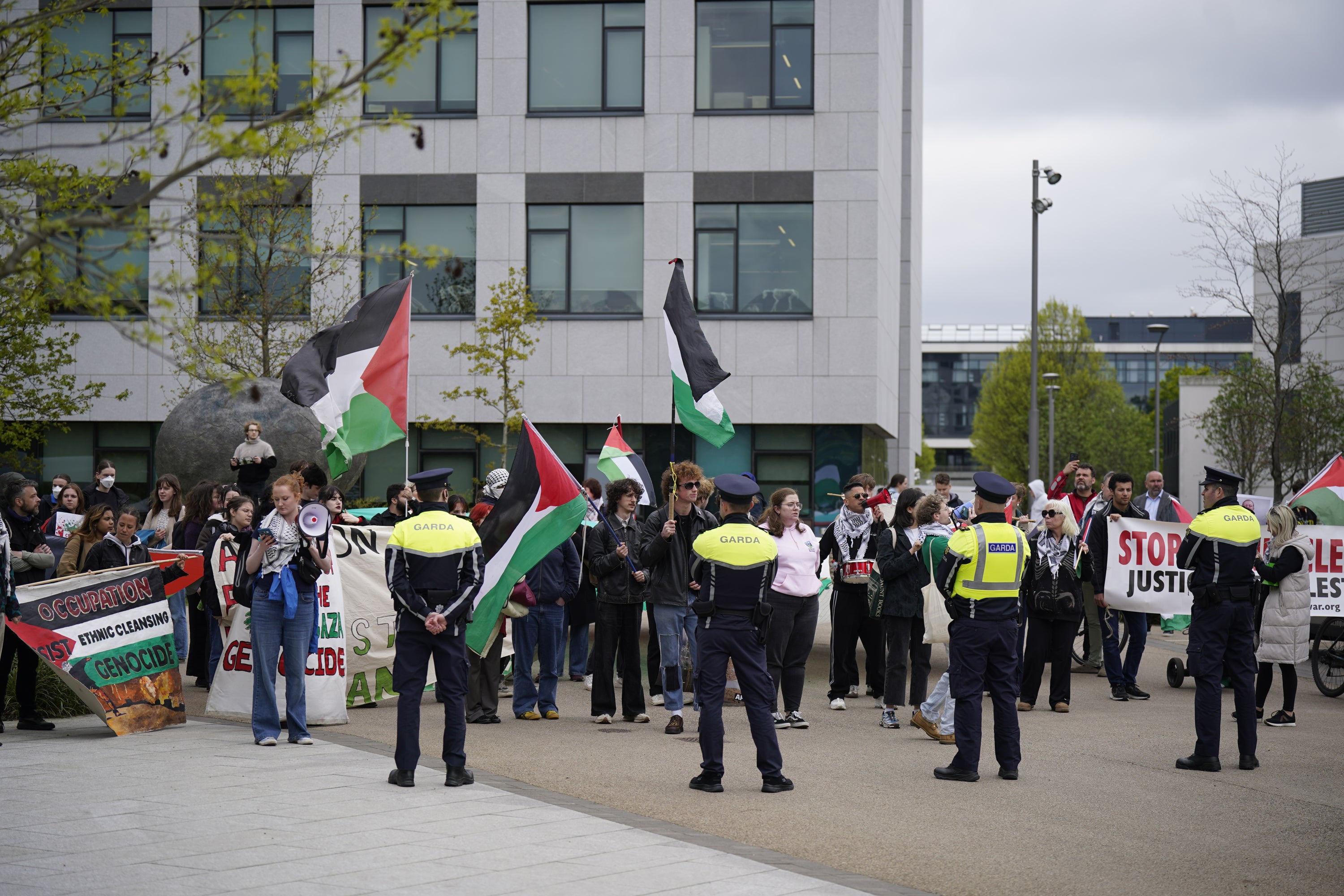Could the Columbia Campus wars over Israel now tear British universities apart?
Pro-Palestinian demonstrations and overt antisemitism led to the national guard being called out to one American university. Think it couldn’t spiral out of control in this country? Think again, says Nicole Lampert

It was just a few days after 7 October when Romilly Blitz experienced her first antisemitic incident on campus. “Brainwashed Zionist genocide supporter,” whispered one of her classmates after a lecture. Other students giggled. Romilly, who like most British Jews has family in Israel, and had friends at the Nova Festival where hundreds of partygoers were murdered, wasn’t to know that was just the start.
In the past six months, she has had people shouting “psychopathic” and “genocidal” as she’s walked across campus. People point and tell each other, “That’s her, that’s the Zionist”. Her photo has been taken and circulated among pro-Palestine WhatsApp groups who were concerned that she would try to infiltrate them.
She’s been made not to feel welcome in certain buildings as she was told by pro-Palestinian protesters they have become “apartheid-free zones”. Once, on a bus on the way home from a nightclub, talk turned to the war and a crowd aggressively started shouting at her, “We are anti-genocidal”. She has been told that people who compared Israel’s stance on gay rights to other countries in the Middle East were guilty of Islamophobia.
Ironically, the person who has been most sympathetic to what this University College London student has been going through is her Palestinian flatmate. Because most of the people screaming pro-Hamas chants and demanding the globalisation of the intifada don’t understand that these things harm Palestinians too.
While legitimate protest is a basic human right, and many Jewish people support the call for a ceasefire and the end to the war in Gaza, what Jewish students are finding is that too often they are held accountable for the actions of the IDF, by people who are parroting pro-Hamas chants and anti-Israel rhetoric which frequently mirrors much older antisemitic tropes.
“At one point, I was too upset and afraid to go on the campus but then I just thought, ‘If they are going to come for me, they will come for me’. I am pro-peace, it is my university too and I won’t let them push me out,” says the 19-year-old.
Attention this week has been focused across the Atlantic, at Columbia, at NYU, at Texas and California where pro-Palestine demonstrations have led to the national guard being called, open antisemitism and days of standoffs.
In the UK, however, the fear among British students has been felt for months.
And just when it seemed like things were slightly calmer after the Easter holidays – as people hunker down to revise for exams and finish their dissertations – there is real concern that pro-Palestinian groups over here will seek to emulate what is going on over there. With warnings that UCL will be the first target for a Columbia-type encampment.

“We are walking on eggshells, wondering if there will be more hatred to come,” says Nick, a mature student doing a masters at the University of Manchester. Like several of the students I talked to, he did not want his real name used because of fear of repercussions.
“There is this feeling in your stomach, a sickening feeling because you never truly feel safe. I try to avoid campus but if I do go in, I hide my Magen David [star of David] necklace and then feel angry that I feel I have to hide it.”
Just as a newly emboldened antisemitism has been rising across society, it has become an even bigger issue on university campuses for a while. In January last year, a government-ordered investigation into the National Union of Students (NUS) found there had been a “hostile culture” towards Jewish members over the last two decades with many being treated as pariahs. The union apologised and pledged to do better. That did not last long.
At the NUS conference in Blackpool just two weeks ago, a swastika and antisemitic language were graffitied in the toilets; there were reports of Holocaust inversion during a debate on Israel, and even a vote by non-Jewish people on whether the Union of Jewish Students – which represents 9,000 students – should be the sole representative of British Jews at the NUS.

“The atmosphere was so febrile and toxic that many students had to receive welfare support from our team,” says UJS president Edward Isaacs. “NUS conference feels broken beyond compare; after they had the report and issued an apology, it was still a space where students felt it was acceptable to draw swastikas and ‘f*** Zios’ on toilets. It was a horrendous experience.”
For British Jews, universities have often felt like the front line of what is known as “new antisemitism”.
Throughout the 1980s and 1990s, various groups tried to ban Jewish societies at universities because their members were Zionists (around 80 per cent of British Jews believe that the state of Israel should exist) and in their parlance “Zionism is racism”.
Since 7 October, Isaacs’s team has dealt with hundreds of direct telephone calls from desperate Jewish students while UJS officers have worked with both the police and the CST, a charity which provides security to the Jewish community.
“People are afraid to show any signs that they are Jewish,’ says Natasha Spungin, a 19-year-old psychology student at the University of Birmingham which, with a society of 1,000 Jewish students, is one of the biggest Jewish student bodies in the country. “I heard about one incident just today where a guy who had a kippah on was shouted at for ‘supporting genocide’.”
There is this feeling in your stomach, a sickening feeling because you never truly feel safe. I try to avoid campus but if I do go in, I hide my Magen David [star of David] necklace and then feel angry that I feel I have to hide it
“There was an Israeli flag left outside a Jewish flat with non-kosher food left on top of it. The aim is to say ‘we know where you live’ and to make Jewish students feel unsafe and intimidated,” adds Spungin.
At Birmingham, an Islam Week in February hosted on campus sparked more tension. “There was a big tent in the middle of the campus with some really interesting stands, and it was all going fine until suddenly it wasn’t,” recalls Spungin.
“There was a demonstration which turned nasty; visibly Jewish people who walked past were heckled; things like ‘Israelis should burn in hell’.” Spungin is keen to point out that the J Soc and the Islamic Society have always got on; the problems started when outsiders came in, as it has on many of the campuses.
At London’s City University, police are investigating the sale of a Socialist Worker Party leaflet which quoted an Egyptian socialist saying: “We unconditionally support Hamas when it is engaged in military or non-military struggles against Israel.”
As in the regular central London marches, there is a Jewish bloc of students who want to march for Palestine and an immediate ceasefire, but the rhetoric being indulged by some of the pro-Palestinian camp has made some uncomfortable.
Edinburgh University student Saskia Marrett described how “supportive” people were to Jewish people like her calling for a ceasefire and she regularly attends the university march every Wednesday.

But as someone who believes the state of Israel has the right to exist, she struggles with calls for “From the river to the sea” and “Intifada everywhere”.
“An intifada is a call for the perpetuation of violence, which is the fundamental thing I want to stop,” she says. “The hardest thing being a Jewish person like me since 7 October is feeling like you are straddling the fence and feeling like you don’t belong in either party. You are not welcome.”
The hostile atmosphere has extended to lectures too – even if the Israel-Palestine conflict has nothing to do with a teacher’s subject.
One Jewish student was asked by a drama teacher to imagine themselves as “part of the Palestinian resistance” shortly after 7 October. Understandably, she felt uncomfortable and didn’t want to return to that class.
Other examples given by the students I spoke to include a psychology lecturer who asked students to imagine whether the Stanford Prison Experiment was “something like the genocide going on in Gaza”; a history teacher put a book on a reading list which said Israelis harvested the organs of Palestinians; an American studies tutor asked students to debate whether what happened on 7 October was “justifiable resistance”; a geography lecturer pointed to a map of Israel and called it Palestine, and an African studies lecturer claimed Israel had deliberately “destabilised” the continent.

In many cases, when students complained, they were told that they were wrong, that this was a free speech issue and they shouldn’t be making a fuss.
You can see why some students feel that the situation isn’t too far from an incident in which saw three Ivy League presidents tell a congressional inquiry that calls for the genocide of Jewish people wouldn’t necessarily violate each university’s code of conduct but would depend on context.
To many, it feels a stark contrast with prevailing campus culture which sees trigger warnings attached to everything from Shakespeare to discussions about old age. To coin a sadly well-worn phrase: to many students, it feels that Jewish people don’t count.
Dr David Hirsh is a sociologist who has been studying as well as experiencing the new antisemitism for two decades and runs the London Centre for the Study of Contemporary Antisemitism. He says we could easily see a Columbia-style situation replicated here in the next few weeks.
“What we are seeing on campuses today is nothing new, but there is just more of it and it feels like it is a discourse which has become completely normalised with more and more sit-ins and ‘occupations’ for Palestine,” he says.
“The genocide allegation posits Jews as the new Nazis and the Nazis were the worst people in the world; this new antisemitism not only allows people to hate the overwhelming majority of Jews, but says they are right to do it.”
Join our commenting forum
Join thought-provoking conversations, follow other Independent readers and see their replies
Comments

Bookmark popover
Removed from bookmarks